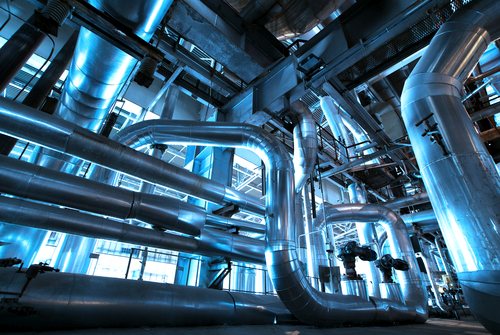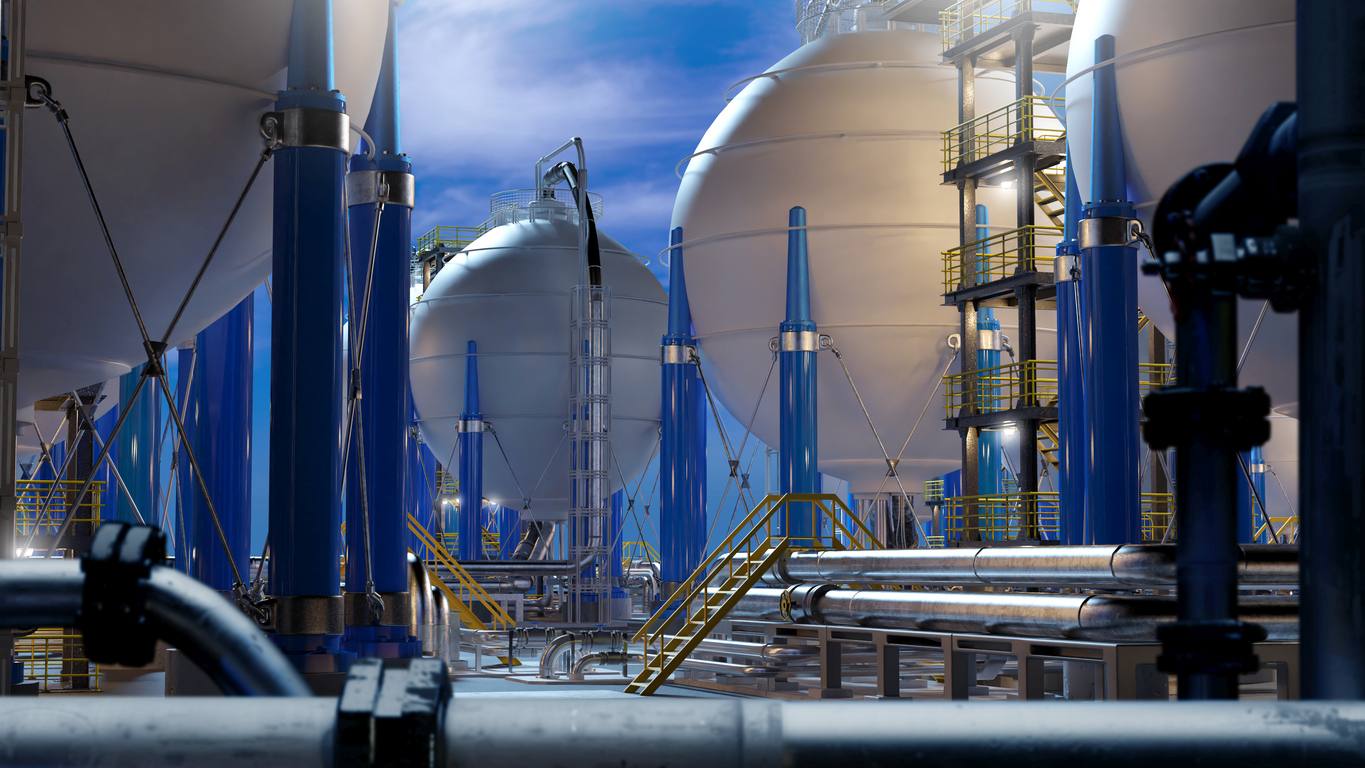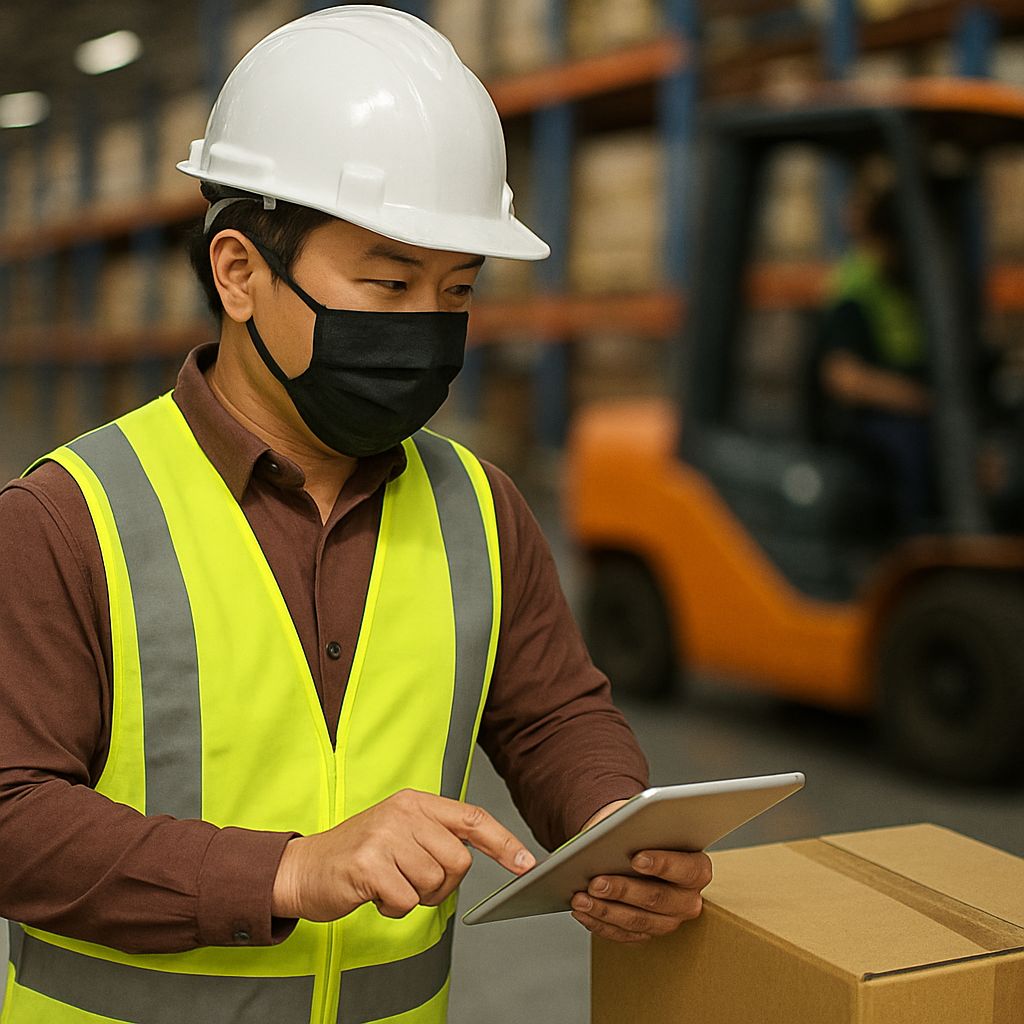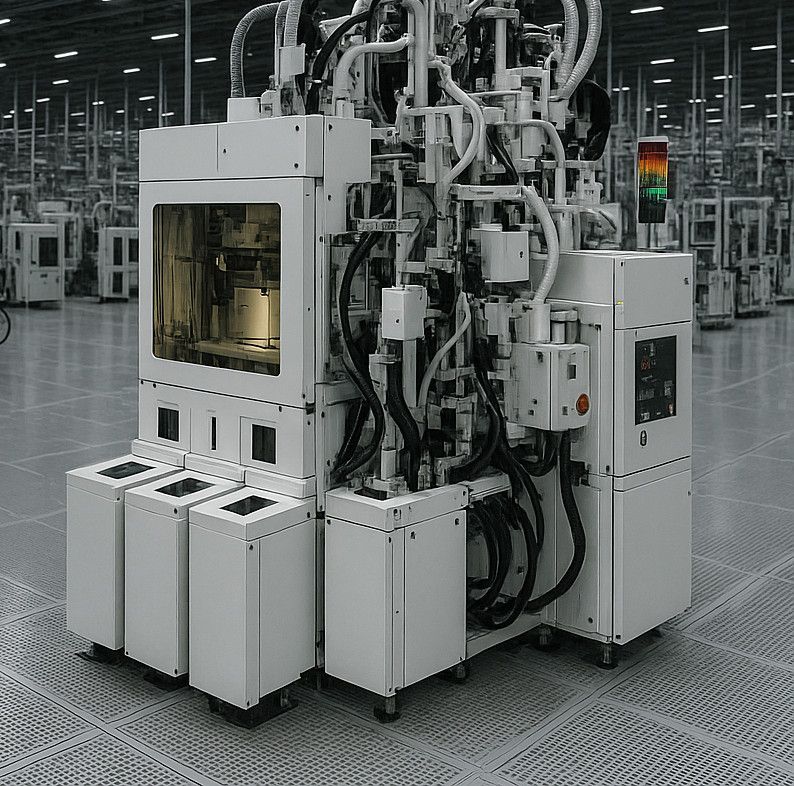Hyundai Oilbank plans to build new power plant powered by natural gas and hydrogen
17. March 2022
South Korean refiner Hyundai Oilbank Co. is planning to build an environmentally friendly power plant that will run on liquefied natural gas (LNG) and hydrogen. This is to meet the growing electricity demand of the Hyundai Oilbank refinery in Daesan, South Korea. The company announced on 22 December 2021 that it is investing US$335.4 million to build the new power plant. After completion and commissioning in 2025, the plant will be able to generate 230 tonnes of steam per hour as well as 290 megawatts of electricity. The fuel will be a mix of 70 percent natural gas (LNG) and 30 percent blue hydrogen (i.e. from fossil sources). Gas and pressure equipment from the power generation sector often require
KGS factory approval to be approved for the Korean market.

Mixed combustion of natural gas and hydrogen is a step towards CO₂ neutrality for Hyundai Oilbank, CEO Kang Dal-ho told Korea Economic Daily. “Power plants that burn natural gas already emit 56 per cent less climate-damaging emissions. By blending hydrogen, emissions can be reduced by another 11 per cent,” Kang Dal-ho said. The new power plant will supply steam and electricity for Hyundai Oilbank’s own facilities as well as for other companies in the Daesan industrial area such as Hyundai Chemical, Hyundai and Shell Base Oil.
The Daesan Industrial Estate will require more energy in the future due to the expansion and commissioning of new plants such as the “Hyundai Chemical heavy feed petrochemical complex (HPC)”. To ensure power supply, Hyundai Oilbank established Hyundai E&F subsidiary in June 2021 and got permission to generate electricity and steam. Hyundai E&F’s plants are expected to meet more than half of the Daesan Industrial Estate’s energy needs, with Hyundai Oilbank being the largest consumer of electricity, accounting for 70 per cent. Previously, the refinery had produced some of the energy it needed itself in the form of steam and electricity.
The Korea Gas Safety Corporation (KGS) is a government organisation under the Ministry of Trade, Industry and Energy (MOTIE). Gas safety regulations in Korea began in 1974 with the passage of the Compressed Gas Control Act. In 1995, the Institute of High Pressure Gas Safety was established, and after several restructurings, the Korea Gas Safety Corporation (KGS) was established in 2001. One year later, KGS was affiliated to MOTIE. KGS was accredited as a Korean Notified Body in 2006 and also accredited to conduct
KCs certification and testing of explosion-proof electrical equipment.
We offer certification services for all product areas, including
KC certification for consumer products and especially electronics,
KC EMC certification for electronic products and KCs certification for machinery, as well as
KCs for explosion-proof products. We are at your disposal for all questions regarding Korea certifications.
Feel free to contact us any time if you need assistance or have any questions regarding Korean certifications.
Tel. Europe:
+49-69-271 37 69 261
Tel. US:
+1 773 654-2673
Email:
info@korea-certification.com
Urgent questions?
Please do not hesitate to contact us via chat. You will find the chat window at the bottom right of each page (if this is not visible, please check your browser settings).
For more information you can download our free brochure “
Korea Certification Made Easy – The Booklet“.
 Mixed combustion of natural gas and hydrogen is a step towards CO₂ neutrality for Hyundai Oilbank, CEO Kang Dal-ho told Korea Economic Daily. “Power plants that burn natural gas already emit 56 per cent less climate-damaging emissions. By blending hydrogen, emissions can be reduced by another 11 per cent,” Kang Dal-ho said. The new power plant will supply steam and electricity for Hyundai Oilbank’s own facilities as well as for other companies in the Daesan industrial area such as Hyundai Chemical, Hyundai and Shell Base Oil.
The Daesan Industrial Estate will require more energy in the future due to the expansion and commissioning of new plants such as the “Hyundai Chemical heavy feed petrochemical complex (HPC)”. To ensure power supply, Hyundai Oilbank established Hyundai E&F subsidiary in June 2021 and got permission to generate electricity and steam. Hyundai E&F’s plants are expected to meet more than half of the Daesan Industrial Estate’s energy needs, with Hyundai Oilbank being the largest consumer of electricity, accounting for 70 per cent. Previously, the refinery had produced some of the energy it needed itself in the form of steam and electricity.
The Korea Gas Safety Corporation (KGS) is a government organisation under the Ministry of Trade, Industry and Energy (MOTIE). Gas safety regulations in Korea began in 1974 with the passage of the Compressed Gas Control Act. In 1995, the Institute of High Pressure Gas Safety was established, and after several restructurings, the Korea Gas Safety Corporation (KGS) was established in 2001. One year later, KGS was affiliated to MOTIE. KGS was accredited as a Korean Notified Body in 2006 and also accredited to conduct KCs certification and testing of explosion-proof electrical equipment.
We offer certification services for all product areas, including KC certification for consumer products and especially electronics, KC EMC certification for electronic products and KCs certification for machinery, as well as KCs for explosion-proof products. We are at your disposal for all questions regarding Korea certifications.
Feel free to contact us any time if you need assistance or have any questions regarding Korean certifications.
Tel. Europe: +49-69-271 37 69 261
Tel. US: +1 773 654-2673
Email: info@korea-certification.com
Urgent questions?
Please do not hesitate to contact us via chat. You will find the chat window at the bottom right of each page (if this is not visible, please check your browser settings).
For more information you can download our free brochure “Korea Certification Made Easy – The Booklet“.
Mixed combustion of natural gas and hydrogen is a step towards CO₂ neutrality for Hyundai Oilbank, CEO Kang Dal-ho told Korea Economic Daily. “Power plants that burn natural gas already emit 56 per cent less climate-damaging emissions. By blending hydrogen, emissions can be reduced by another 11 per cent,” Kang Dal-ho said. The new power plant will supply steam and electricity for Hyundai Oilbank’s own facilities as well as for other companies in the Daesan industrial area such as Hyundai Chemical, Hyundai and Shell Base Oil.
The Daesan Industrial Estate will require more energy in the future due to the expansion and commissioning of new plants such as the “Hyundai Chemical heavy feed petrochemical complex (HPC)”. To ensure power supply, Hyundai Oilbank established Hyundai E&F subsidiary in June 2021 and got permission to generate electricity and steam. Hyundai E&F’s plants are expected to meet more than half of the Daesan Industrial Estate’s energy needs, with Hyundai Oilbank being the largest consumer of electricity, accounting for 70 per cent. Previously, the refinery had produced some of the energy it needed itself in the form of steam and electricity.
The Korea Gas Safety Corporation (KGS) is a government organisation under the Ministry of Trade, Industry and Energy (MOTIE). Gas safety regulations in Korea began in 1974 with the passage of the Compressed Gas Control Act. In 1995, the Institute of High Pressure Gas Safety was established, and after several restructurings, the Korea Gas Safety Corporation (KGS) was established in 2001. One year later, KGS was affiliated to MOTIE. KGS was accredited as a Korean Notified Body in 2006 and also accredited to conduct KCs certification and testing of explosion-proof electrical equipment.
We offer certification services for all product areas, including KC certification for consumer products and especially electronics, KC EMC certification for electronic products and KCs certification for machinery, as well as KCs for explosion-proof products. We are at your disposal for all questions regarding Korea certifications.
Feel free to contact us any time if you need assistance or have any questions regarding Korean certifications.
Tel. Europe: +49-69-271 37 69 261
Tel. US: +1 773 654-2673
Email: info@korea-certification.com
Urgent questions?
Please do not hesitate to contact us via chat. You will find the chat window at the bottom right of each page (if this is not visible, please check your browser settings).
For more information you can download our free brochure “Korea Certification Made Easy – The Booklet“.










